Getting to know Uganda's newest music festival, Nyege Nyege
The last decade has seen many new genres of music emerging and older ones transforming, but few people outside their countries of origin get to hear these new styles, particularly before the reach the mainstream. Now in its second edition, Nyege Nyege International Music Festival in Uganda provides a platform for music lovers in East Africa to experience the latest trends in music from across the continent.
The founders of the festival, Arlen Disizilan and Derek Debru, spoke to Music In Africa recently to explain their vision for Nyege Nyege, which returns to Nile Discovery Beach in Jinja between 2 and 4 September.
 Fans enjoy music at the 2015 Nyege Nyege Festival. Photo by Nekane R.de Ozamiz
Fans enjoy music at the 2015 Nyege Nyege Festival. Photo by Nekane R.de Ozamiz
Derek and Arlen have been working since 2011 on developing the music scene in Uganda, particularly Kampala and its surrounding areas. Through their Boutiq Foundation, they have worked with talented underground musicians, hosting monthly artists’ residencies as well as setting up studios and hosting events. Artists they are working with this year include South African-Mozambican trio Batuk, Jesse Hackett from the Owiny Singoma Band (UK/Kenya) and North African electronic music collective Arabstazy.
The birth of Nyege Nyege
With Nyege Nyege, Derek and Arlen say they wanted to estabalish a festival that could showcase the exciting transformations in contemporary African music. “Hipco from Liberia, Balani from Mali, Electro Chaabi from Egypt, Moroccan Bass and Funana from Cape Verde are sounds that are not fully experienced on the music scene and we wanted to bring them to the people,” they explained.
After working with talented underground musicians and playing alternative African music at their parties, it was only a matter of time before this evolved into a full size festival. Derek explains: “In 2015 we had invited Riddlore, the legendary LA underground MC/producer to come to Uganda for a residency. He readily accepted and came for three months. At the same time, DJ Zhao, the Berlin-based rhythm ambassador from China, also accepted our call for residency. Then we got some support from the Scotland cultural ministry, and we got world renowned reggae soundsystem Mungo’s Hi-Fi to come to Uganda. That was our second African premiere. All of a sudden things started to look like a festival."
Having worked with many artists in Uganda, they knew that the demand for such a platform was very real. Using some of their savings, the two started testing the waters with different artists to see the feasibility. So the debut edition was scheduled for 16 to 18 October 2015, but the organizers had not factored in many other things such as the weather. Throughout the three days of the festival, it rained heavily and they had to incur unexpected costs. They incurred losses for the first edition, and have therefore moved the festival forward to September for this year's second edition.
The festival's name evokes different meanings among the East African countries. While in Uganda it refers to the uncontrollable urge to dance, for Swahili speakers nyege has sexual connotations. Derek explains: "The first time we heard the word was from a friend in Uganda. It was a Friday afternoon and we were setting up for a party for that evening. We set up the soundsystem and the DJ played this Owiny Sigoma Band track we hadn’t heard before. Our friend said, “Hey I’m feeling ki nyege nyege.” I asked what that meant and a few people got into the conversation, explaining that this is when you feel you want to dance.
“We found out that Nyege Nyege also had sexual connotations for some, especially in Swahili. So for once Uganda was going to have the upper hand in appropriating the meaning of a word. We thought it was a double meaning worthy to play around with and it just sounded so perfect, so we went for it!”
Festival programming
With festival programming being a key element for the success of any festival, Nyege Nyege works with various music enthusiasts around the continent to come up with its line-up. Unlike most festivals that issue calls for artists to participate, Nyege Nyege identifies artists who are then invited to perform at the festival.
In addition to the explosion of many new genres, the last decade has seen the emergence of record labels digging up amazing music from across the whole continent, like Sahel Sounds, Akwaaba, Awesome Tapes from Africa, Sofrito and Analog Africa. Whilst these labels and there music are getting exposure in the West, there were few opportunities to showcase the great work of a small but highly dedicated group of music lovers within Africa. The organizers have therefore been inviting many of these people both to showcase the work of their labels as well as to help curate the line-up with their own expertise. While curating helps to get the underground musicians onto the global stage, Arlen notes that the festival may take a new direction about finding artists for their next edition.
Besides exposure of genres that are rarely heard, Nyege Nyege also seeks to increase the cross-fertilization of African music with European underground dance sensibilities; a development that the organizers feel is being neglected in the African festival circuit. For the 2016 edition, Nyege Nyege therefore aims to "scale up" from its first edition. Other than holding the festival at a time when the weather is good, the organizers are focused on staging a bigger and better festival, including providing better amenities.
This year the line-up has been divided regionally, with representatives from all corners of the continent. With many acts already confirmed, a strong North African contingency is expected, as well as top artists from West Africa, curated with the help of Benjamin LeBrave from Akwaaba in Accra. These include Mamman Sani, the legendary synth player from Niger as well as Les Filles de Illighadad, who are expected to give one of their first public performances at the festival.
Even with the goodwill from many people around the world to help make the festival a success, Derek and Arlen say that the main challenge they currently face is to engage with the local community so that they feel a sense of ownership and pride in the event in their town, particularly so that it makes economic sense to them. They also acknowledge that it's easier to host events outside of Kampala as there are fewer restrictions on large gatherings with "thunderous" sound systems. As a completely independent festival that for the time being does not rely on any corporate or donor funding, Nyege Nyege relies purely on ticket sales, although they expect that as audiences grow, so will the quality of the festival's line-up and the overall experience.
For more details visit the Nyege Nyege website or Facebook page. Watch highlights from last year's festival in the video below.













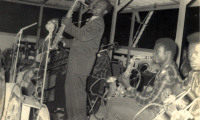





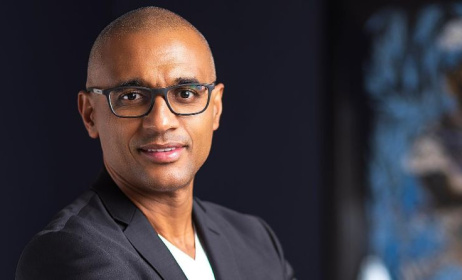
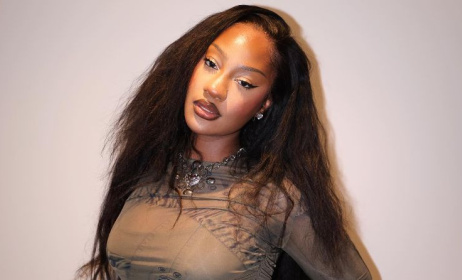




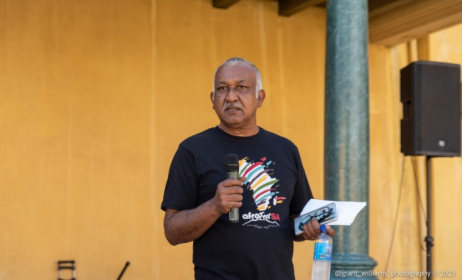
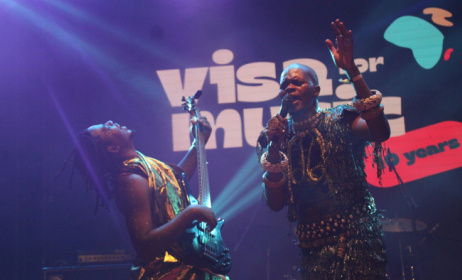

Comments
Log in or register to post comments